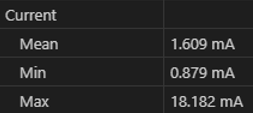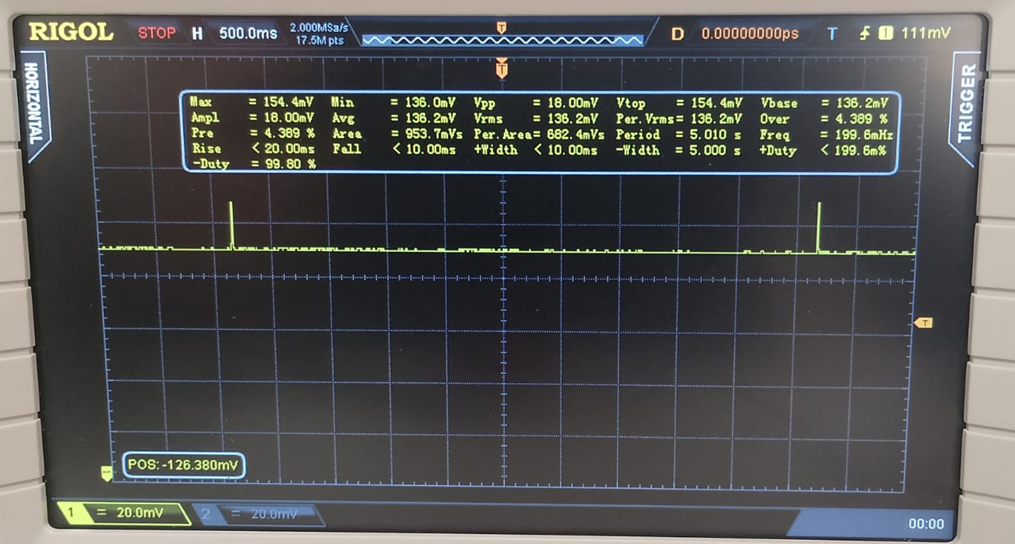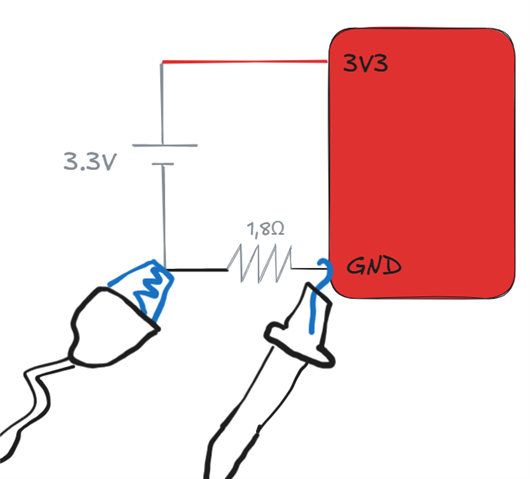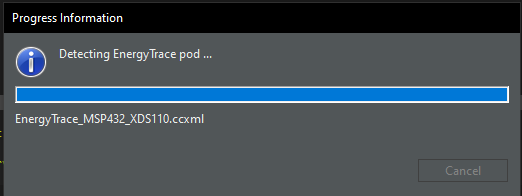Other Parts Discussed in Thread: ENERGYTRACE
Tool/software:
Hello,
I am working with the CC1312R1, both on a LaunchPad and on a custom board, and I am comparing current consumption measurements using EnergyTrace in CCS and an oscilloscope (with a small shunt resistor in series with the supply). I am using the rfPacketTx example with POWER_MEASUREMENT defined.
The problem is that the results are not consistent:
-
On the LaunchPad, EnergyTrace reports a decent low consumption, while the oscilloscope shows much higher values.


As I said, I am measuring the voltage difference in a 1.8 ohm shunt resistor in series with the supply. I remove all 11 jumpers in the center of the launchpad and selected Extern power. The measuring circuit is something like this:

 }
} I got the same results with the resistor in the positive side.
I got the same results with the resistor in the positive side. - On the custom board, the oscilloscope readings were lower than on the LaunchPad but still not as smaller as in the datasheet:
Max Current = 17.7 mA, STANDBY Current = 444.4 uA
For this measurement I am only using the RF module, passivating all other circuits.
In this case, the inconsistency with EnergyTrace was in the opposite way:
 with the oscilloscope I got a lower value.
with the oscilloscope I got a lower value.
Checks performed:
-
Power supply ground is isolated (verified by continuity measurement).
-
Tested different shunt resistors (1.8 Ω, 22 Ω). With 22 Ω the launchpad did not power up.
-
Oscilloscope probe set to 10x.
-
Also tried differential measurement, but results remain inconsistent.
Could you please clarify:
-
What is the recommended way to validate EnergyTrace current measurements against an oscilloscope?
-
Is there any known offset, filtering, or averaging in EnergyTrace that explains these differences?
-
Could the discrepancies be due to the measurement method or to the power supply?
Any guidance would be greatly appreciated.
Thanks in advance,
Agustín


